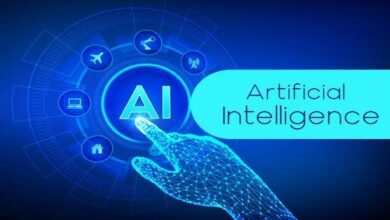
Artificial Intelligence (AI) has been a topic of great interest and fascination for many decades, and its impact on the world has already been profound. From self-driving cars to virtual assistants, AI is transforming the way we live, work and communicate. The advancements in AI have been rapid, and the future of AI technology promises to be even more exciting.
Most important areas of AI research
One of the most important areas of AI research is Natural Language Processing (NLP), which is the ability of computers to understand, interpret and generate human language. In the future, NLP will become even more sophisticated, allowing computers to understand and respond to human language in a more human-like way. This will have important implications for industries such as customer service, where chatbots will be able to understand and respond to customer queries with greater accuracy.
Another area of AI research that is set to change the world is computer vision. This is the ability of computers to interpret and understand visual information, such as images and videos. In the future, computer vision will become even more advanced, allowing computers to recognize objects and scenes in real-time, even in challenging environments. This will have important implications for industries such as retail and e-commerce, where computers will be able to identify and recommend products based on visual cues.
In addition to NLP and computer vision
AI will also play a critical role in the development of autonomous systems. Autonomous systems, such as drones and self-driving cars, will become even more sophisticated in the future, allowing them to operate with greater safety and efficiency. In particular, the development of 5G networks will play a critical role in the widespread deployment of autonomous systems, as it will provide the high-speed, low-latency connectivity that is required for these systems to function effectively.
AI will also have a significant impact on healthcare, as machine learning algorithms will become increasingly sophisticated, allowing doctors and medical researchers to make more accurate diagnoses and treatment plans. In particular, AI will play a critical role in the development of personalized medicine, where treatments are tailored to the individual needs of each patient based on their genetic profile and medical history.
Important role in the development by AI
Finally, AI will also play an important role in the development of smart cities. In smart cities, AI algorithms will be used to optimize the use of resources, such as energy and water, and to manage the flow of traffic and public transportation. This will lead to more efficient and sustainable cities, which will be better equipped to deal with the challenges of urbanization, such as population growth and environmental degradation.
In conclusion
The future of AI technology promises to be even more exciting than its present. With advancements in NLP, computer vision, autonomous systems, healthcare, and smart cities, AI will play a critical role in shaping the world of tomorrow. It is important for businesses, governments and individuals to embrace these technologies and to understand their potential impact on society. By doing so, we can ensure that AI is used in a responsible and ethical manner, and that its benefits are shared by all. Yet, there is a lot more to be studied in the IA field, like their effects in parties like INS Global and PEO.




